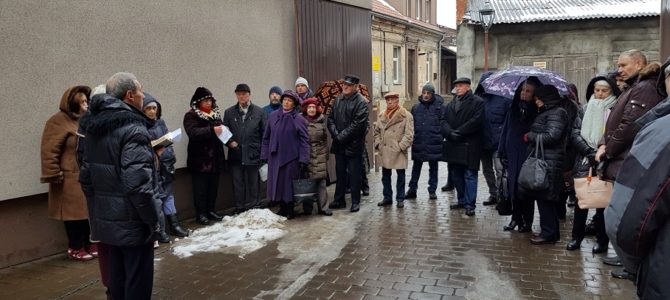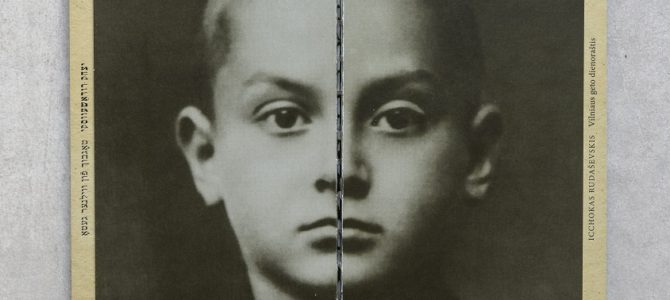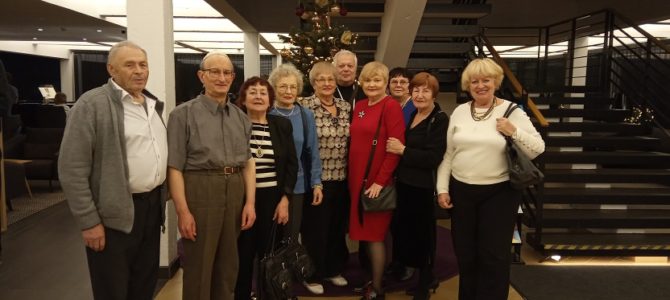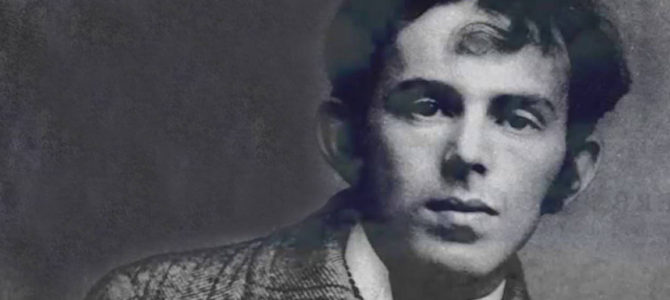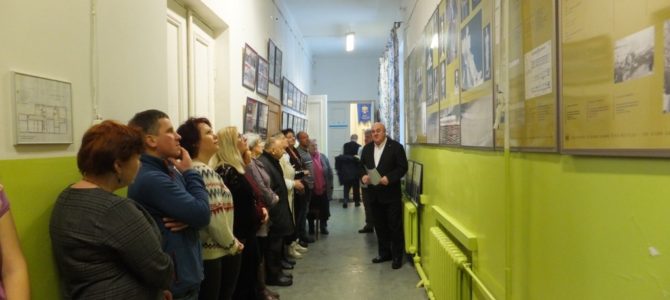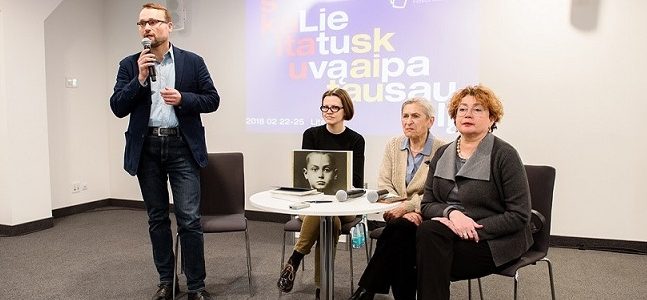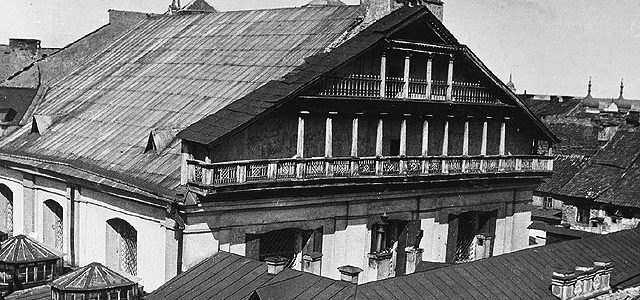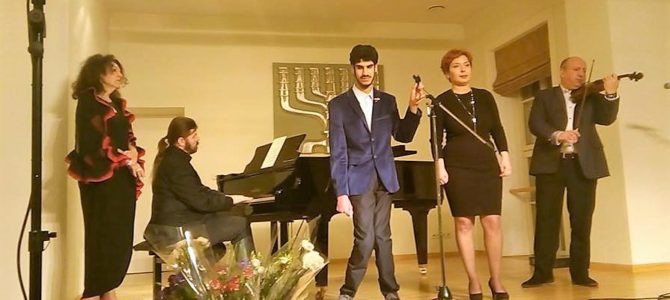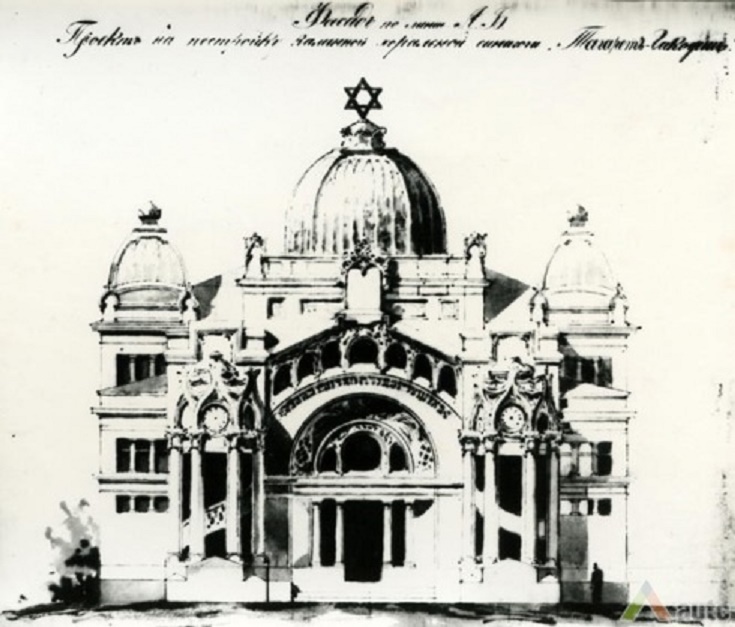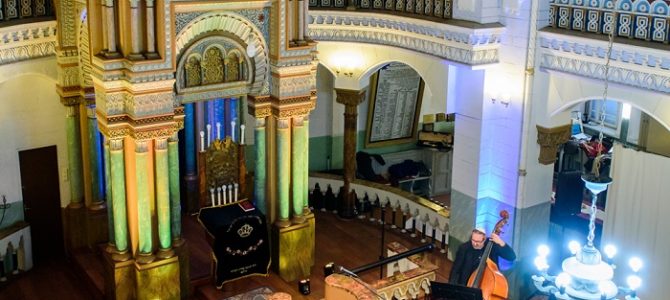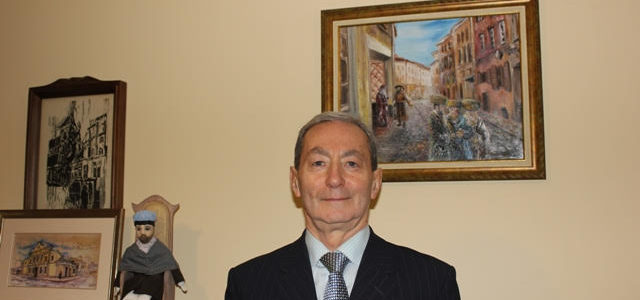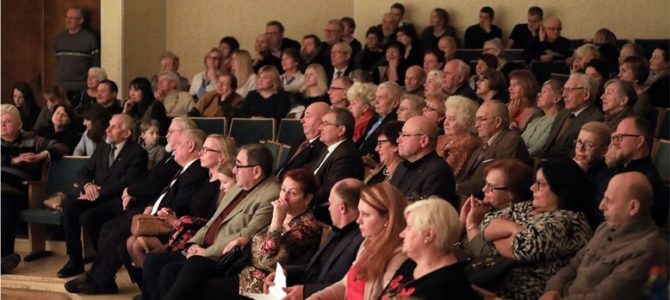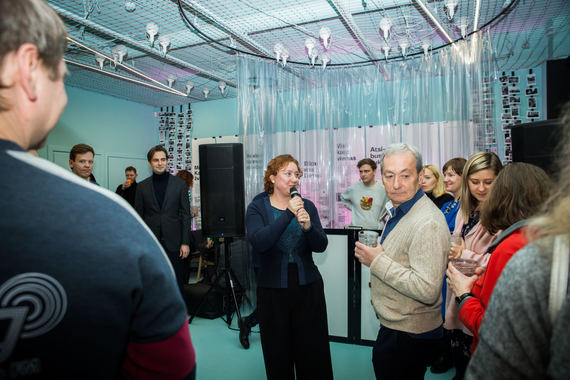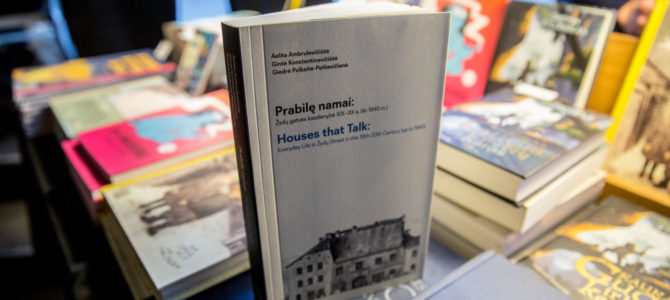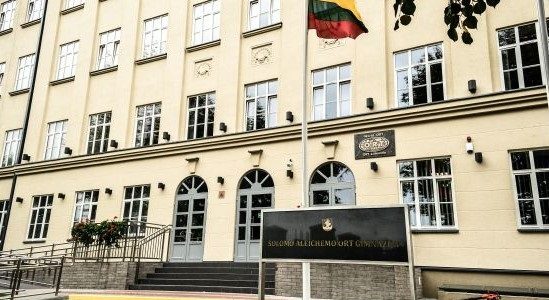The Kaunas Jewish Community and the Russian meeting club Nadezhda held a commemoration of Litvak poet Osip Mandelshtam (aka Osip Mandelstam, 1891-1938) at Palangos street no. 1 in Kaunas, where the poet lived as a child, on December 27, 2018.
For many years it wasn’t known Mandelshtam died en route to his second deportation, the gulag in Kolyma, just as it wasn’t known he was a Lithuanian Jew and both parents were Litvaks: his father Emil Mandelshtam was from the town of Žagarė and his mother Flora Verblovskaya was from Vilnius. Many of the relevant documents in the life of Osip Mandelshtam are still unknown to literary experts.
The public release of these documents began relatively recently. Even so, even in the newest articles about Mandelshtam, for example, in Pavel Nerler’s “Osip Mandelshtam: Life and Family” (Znamya no. 12, 2016), the claim is made that Mandelshtam’s vital records have never been located. This is no longer true: Geršonas Taicas from Vilnius has found the record of Mandelshtam’s birth in Warsaw.
Taicas did further research and discovered the reason why Osip Mandelshtam (and his father, mother and their other son Aleksander) lived in Kaunas in 1896. Taicas also believes the surname, Mandelshtam, might not mean exactly what the accepted interpretation says it does, namely, “almond tree.”


